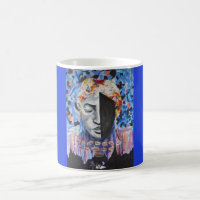To me the Juneteenth Day Celebration is as much an abolitionist success story as it is a story about the end of slavery in the U.S. Nothing can compare to the end of slavery in this country for the Africans, turned African Americans over the hundreds of years Africans toiled in first the colonies on into a growing union of states; but the truth is that for almost every runaway slave that made it safely to the promised land there was a dedicated group of non-black people helping them turn their escape attempts into escape success. Before the Underground Railroad, many slaves chose self-emancipation relying only on their wits, a little luck, and the north star to guide them. For American African people who self-emancipated help from the abolitionist usually only occurred if they reached their intended destination. If they didn't or were caught, well I won't go there right now.
The abolitionist as far as I can see were all motivated by many different causes when it came to assisting runaway slaves; and in my opinion, not all of those causes were good ones. The abolitionists' overall goal did seem to be freedom for those they assisted. However, in the case of the abolitionist that worked with The Colonization Society the freedom they helped provide included a trip to Africa. The abolitionists working with The Colonization Society worked with slaves that were, for the most part, freed slaves. With the promise of a better life in Africa than the life, a free American African could expect in America, freed slaves and their families were given passage to Africa. I suppose the slave owners, and merchants who financed the trips to Africa felt it was better not to have free slaves being looked upon as a ray of hope by a slave population yearning to live free, I can only guess at their motivation. Some of the ex-slaves, however, had no problem accepting the free trip to Africa in spite of the hardship involved in learning a new land, a new language, and soon a long-distance connection with family still living in the U.S.
Other abolitionist organizations worked with freed, and runaway slaves in order to help them relocate to areas away from the places they had lived enslaved. There were two forms of abolitionist that I have labeled the violent and the non-violent kind. The violent kind, like John Brown's brand of abolition, believed that change through violence was the way to finally get rid of slavery in the U.S. A raid he staged to prove his point would result in the loss of his life along with the lives of two of his sons and several of his followers. While John Brown's raid was a failure, but the message his actions sent to the south was clear, there were whites in the north ready and willing to arm and fight with the slaves to end slavery.
The majority of abolitionists, however, chose the non-violent form of protest against slavery and participate in the Underground Railroad the clandestine system set up to assist runaway slaves on their journey to freedom. The safe-houses, wagons, and boats maintained by the farmers, shopkeepers, clergymen, and citizens who worked for the abolition of slavery risked life, limb, property, and freedom since at the times helping a runaway slave was against the law. If caught helping a runaway slave, in some cases the abolitionist was just as likely to suffer the same fate as the slave they were trying to protect. That is why I believe the Juneteenth Day Celebration is a reason for the black and white abolitionist to party. Beyond all the famous abolitionists that are mentioned in history books like Frederick Douglas, Harriet Tubman, William Stills, and Susan B. Anthony, there are countless other names of abolitionists that were there manning the invisible tracks of the Underground Railroad until slavery in the U.S. was gone.
Many abolitionists refused to acknowledge their participation in abolition because of the illegality of it I guess. Others, like William Stills, held on to the notes he made chronicling his involvement with the Underground Railroad; in the hope that his written accounts might someday be responsible for reuniting slave families. Those notes have been turned into a book bearing his name, William Still. After slavery many abolitionists turned their energy toward other social injustices and took on other social issues of the day, it would take some time but because of the abolitionist movement women would eventually gain the right to vote a right the American men of African descent had been given with the passage of the 15th Amendment, again, thanks in part to the abolitionist.



 Harriet Tubman Collage Mug
Harriet Tubman Collage Mug Juneteenth Mug
Juneteenth Mug Juneteenth Mug
Juneteenth Mug Springfield Juneteenth Mug
Springfield Juneteenth Mug Juneteenth Mug
Juneteenth Mug Juneteenth Stars Coffee Mugs
Juneteenth Stars Coffee Mugs Juneteenth Stars Specialty Mugs
Juneteenth Stars Specialty Mugs Juneteenth Stars Lovers Mugs
Juneteenth Stars Lovers Mugs Juneteenth/Liberation Coffee Mugs
Juneteenth/Liberation Coffee Mugs Juneteenth/Liberation Lovers Mugs
Juneteenth/Liberation Lovers Mugs Juneteenth/Liberation Specialty Mugs
Juneteenth/Liberation Specialty Mugs Juneteenth Freedom Day African American Coffee Mug
Juneteenth Freedom Day African American Coffee Mug Black History Emancipation Freedom Juneteenth Mug
Black History Emancipation Freedom Juneteenth Mug Juneteenth Party 1865 Coffee Mug African American
Juneteenth Party 1865 Coffee Mug African American Juneteenth Freedom Day Coffee Mug June 19th
Juneteenth Freedom Day Coffee Mug June 19th Party Like Its 1865 Happy Juneteenth Coffee Mug
Party Like Its 1865 Happy Juneteenth Coffee Mug Juneteenth/Liberation Soup Mug
Juneteenth/Liberation Soup Mug BLACK RAINBOW mug
BLACK RAINBOW mug Juneteenth Freedom Coffee Mug
Juneteenth Freedom Coffee Mug Juneteenth Freedom Black History Flag Coffee Mug
Juneteenth Freedom Black History Flag Coffee Mug Party Like Its 1865 Happy Juneteenth Coffee Mug
Party Like Its 1865 Happy Juneteenth Coffee Mug Juneteenth Stars Soup Mug
Juneteenth Stars Soup Mug











